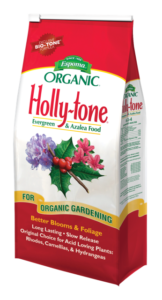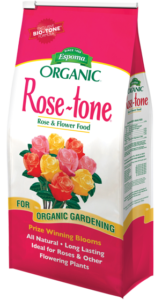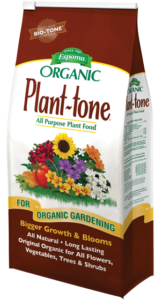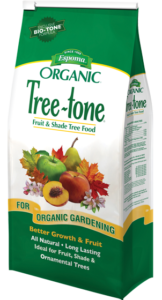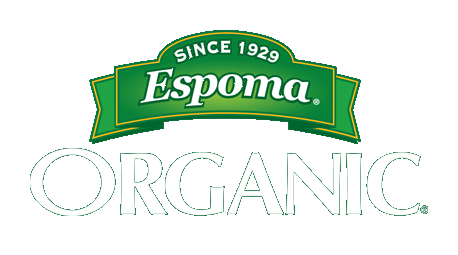Spring Fertilizing Tips
Laura walks us through fertilizing trees, shrubs, perennials in early spring. Wait until you see some growth on your plant to fertilize.
1. Gardening always starts with the soil. Organic fertilizer “feeds the soil that feeds the plants”. The process by which organic fertilizers deliver their nutrients enhances the fertility and structure of the soil.
Organics are digested by soil microorganisms, which then release the nutrients in a form available to plants. This process produces humus, a spongy material that improves soil structure. When you improve soil structure, the soil is better able to hold the proper balance of water, air and nutrients until they are required by plants.
Plants respond by developing larger root systems. Larger roots support more vigorous top growth and make plants less susceptible to drought. And by stimulating a healthy population of beneficial microorganisms in the soil, plants become more resistant to insects and diseases.
2. Organic fertilizers will provide slow, steady feeding, as the plants require it. The release process is slow and largely dependent upon three factors: the microbial population in the soil, moisture, and soil temperature.
A healthy population of microbes in the soil is necessary for the digestion process. Moisture is required to sustain microbial life as well as to keep nutrients flowing into the plants root zone. And soil temperature is critical because as it rises, plants require nutrients more rapidly.
Fortunately, microbial activity mimics these requirements and increases as soil temperature rises, so that organics feed the needed nutrients as the plants require them.
Products used in this video:

